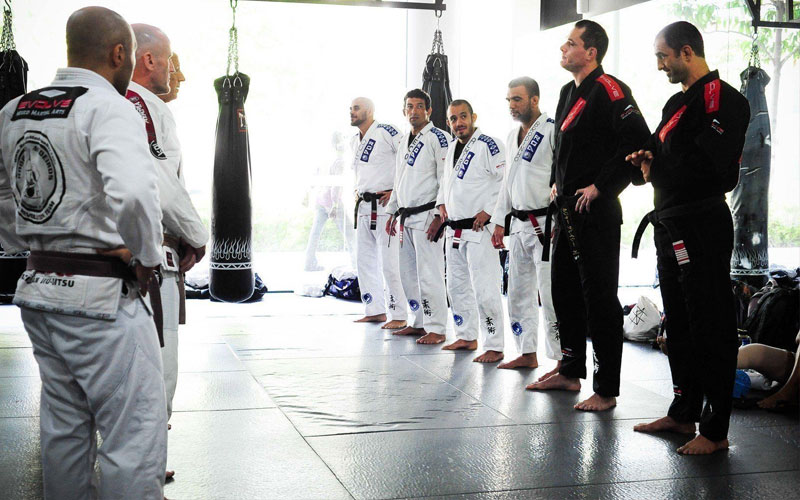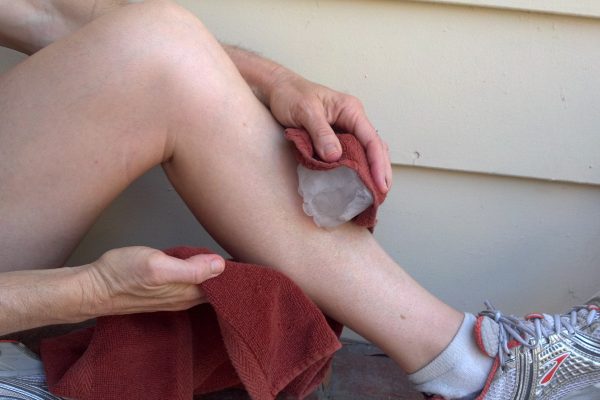At first, the gentle art of Brazilian jiu jitsu appears to be anything but gentle. Watching classmates take their opponents down and rolling them until submission can be intimidating. All of your classmates probably started their training with similar questions and concerns. Here are a few things to keep in mind as you begin your journey into jiu jitsu.
Table of Contents
Research the Gym
First and foremost, be comfortable at the gym you select. Write
down exactly why you want to explore martial arts. Do you want to compete at a
professional level? Are you looking for a way to improve your physical fitness?
Did you recently move to a new city and want to continue training? What days
are you available to train? Take the time to read online reviews, call the gym,
and speak with the coaches. Most San Diego jiu jitsu schools offers free classes
so you can get a feel for the experience before committing.
Know Your Gear
Find out the requirements for your gi before you purchase one.
The gym may mandate a style or color. Some gyms want the school name on the gi.
Many gyms allow you to borrow a gi for your first few classes. You can explore
the gym before investing in the gear.
Some jiu jitsu classes are no-gi. Wearing shorts and a T-shirt
instead of a traditional gi requires different skills because you cannot grab a
gi for leverage. Most people select their class type based on personal
preference. If you are competing, consider learning both styles.
Respect Is Key
Expect a crash course in mat etiquette. Some jiu jitsu coaches
want to be addressed in a certain manner – Sensei, Coach, or Master. You will
bow when entering the dojo or the mat. Look alert and attentive when learning
new techniques or observing other classmates during randori.
Work With a Classmate
Some jiu jitsu schools allow you to select your partner during
practice. Others assign partners. Take a moment to consider the physical
attributes of your partner. A 50-year-old male may need a little more recovery
time than a 25-year-old opponent. Females tend to have less muscle mass than
males. It is easier to overpower a female with brute force than skill. More
experienced students typically slow down to give new students the chance to
learn skills.
Generalizations are not always the rule. Conditioning can affect
the recovery time of anyone, regardless of age, size, or gender. Smaller people
may use speed and flexibility to their advantage. Coaches may ask experienced
students to work at full strength to emphasize a point.
Learn to Fall
Always follow your coach’s instructions to prevent injury.
Coaches ensure you execute moves safely. Warm up before every class. A pulled
muscle can sideline you for weeks. If you don’t feel comfortable working with a
classmate, quietly and respectfully explain the situation to your coach. The
coach should monitor how students work with each other.
Your first jiu jitsu training lesson should include protecting
yourself when you fall. Tucking your head, rolling through the fall, or
controlling your body is critical to preventing injury when practicing. If your
partner has you in submission, tap and start over. Staying in a chokehold too long restricts blood flow to
your brain and can cause you to pass out.
Protect Your Classmate
When rolling with a partner, control your movements. Flailing
elbows and knees can break a nose. Even severe bruising can sideline your
partner for a class.
Talk to your classmates and know their goals. A student in your
jiu jitsu gym in San Diego seeking an MMA career may train harder than someone
using the program for physical fitness. As you promote, be sure to understand
the rules on how hard you randori with newer students.
Practice Good Hygiene
Good hygiene is important for your and your classmates’ health.
At the end of a session, sweat and blood – both yours or your opponent’s – may
be on your clothes. Be sure to wash and fully dry your gi and workout clothes
after every practice. Use the shower facility in the jiu jitsu school to rinse
off after training. Change into street clothes before leaving to prevent sweat
from staining your car.
Remove jewelry so it doesn’t break. Rings can scratch opponents.
Earrings get ripped out during randori. Trim your fingernails and toenails to
prevent scratching yourself or your opponent. Scratches can draw a lot of blood
and stop a match. If your nails are still sharp, you can trim them shorter, or
apply a coat of clear nail polish to minimize scratching.
When you undertake any new activity, you will have questions
about the experience. These tips will help you be more confident in your first
few jiu jitsu training sessions. More confidence makes you a better student.





